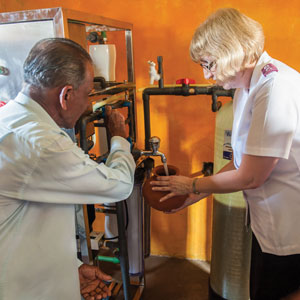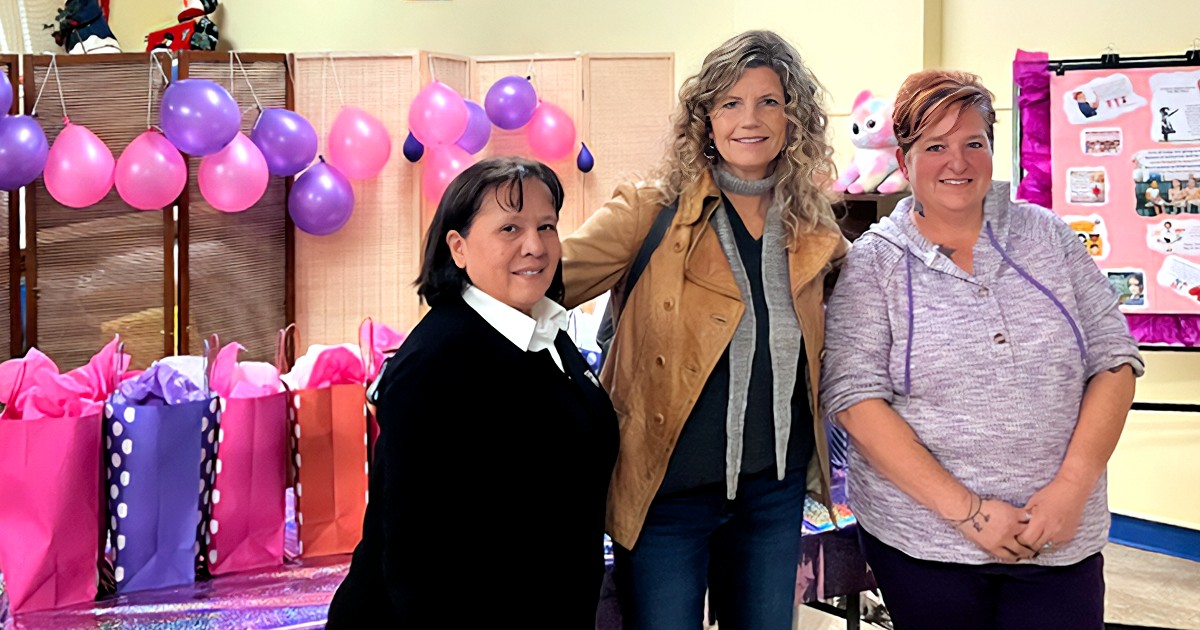The island is a jewel, but perhaps the most precious part was its people: warm, welcoming and proud of their long cultural heritage. Anthropologists suggest that the Sri Lankan civilization dates back at least 5,000 years. Yet the ancient and the modern come together in the commercial capital, Colombo, and in coastal cities such as Galle and Hikkaduwa.
The people we met who were involved in Salvation Army ministry were completely committed to helping their fellow Sri Lankans, providing opportunities for better health, housing, education and livelihoods. The gospel is preached not only from pulpits, but also in actions and relationships.
The main project that the Canada and Bermuda Territory has been working on is known as S.W.A.L.D.: Safe Water and Livelihood Development. A significant number of communities in the Polonnaruwa area have exhibited disproportionate incidences of kidney disease, attributed to the lack of safe drinking water. As a result, The Salvation Army has been digging wells and providing filtration equipment to provide safe water to these communities. It was my great pleasure to participate in the dedication ceremony for a completed well project while we were there.
After lighting an elaborate oil lamp with many different wicks—one for each guest or dignitary—and several speeches, I was invited to cut the ribbon decorating the door to the pump house. Upon entering, the engineer asked me to push a button and the pump motor roared to life. He then gave me a clay pot to hold under the tap and told me to turn it on. When the sparkling clean water flowed into the pot, everyone cheered.
 As the pot filled up, I motioned to the engineer that it was time to turn off the tap, but when he did, the hastily put-together plumbing gave way. The tap came loose and I was soaked! It was quickly repaired and everything was in working order as people from the community lined up with their containers to take clean water home.
As the pot filled up, I motioned to the engineer that it was time to turn off the tap, but when he did, the hastily put-together plumbing gave way. The tap came loose and I was soaked! It was quickly repaired and everything was in working order as people from the community lined up with their containers to take clean water home.
The other focus of the project is livelihood development. We had the privilege of visiting a family—a mother, two teenagers and her in-laws—that received a sewing machine and fabric. Although the mother is suffering from cancer, she has been the family's breadwinner since her husband passed away. She uses the sewing machine to make mosquito nets, which she sells in the local market.
On Boxing Day 2004, this resplendent island was devastated by the tsunami that swept across the Indian Ocean. Approximately 30,000 people were killed, 20,000 were injured and more than a million were displaced. The loss of homes, business and agricultural land was staggering.
The Salvation Army responded to the disaster with relief and recovery efforts, supporting housing projects and helping local businesses re-open. We visited one such businessman who runs a metalwork shop. The Army helped rebuild the workshop and replaced some of the needed equipment. Now, he has several employees who also make their living from the shop. His daughter is able to study at university, and is working on an accounting degree—a woman after my own heart. I was happy to see the lasting benefit that came from investing in this project.
Perhaps my most significant memory is of the children we met who are being cared for by The Salvation Army. When we asked them what they wanted to be when they grew up, their responses included lawyers, teachers, engineers, and quite a few Salvation Army officers. They are big dreams, but because people in Canada and Bermuda care enough to sponsor children through our Brighter Futures program, they can come true.
As we start our 2017 Partners in Mission campaign, I challenge our territory to dream big as well, and consider what we can do to help people for whom life is a daily struggle for survival.
Commissioner Susan McMillan is the territorial commander of the Canada and Bermuda Territory. Follow her at facebook.com/susanmcmillantc and twitter.com/salvationarmytc.










Leave a Comment